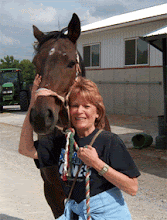US House passes legislation to protect burros and wild horses

AP Photo/Watertown Daily Times, John Hart
By a vote of 239 to 185, the House of Representatives voted handily in favor of bill H.R. 1018 providing federal protection to burros and wild horses. The bill had been introduced by Natural Resources Committee Chairman Nick Rahall (D - W.Va.), a staunch advocate of horse protection and an unyielding animal welfare advocate.
Known as the Restore Our American Mustangs, or ROAM Act, the Bill was co-sponsored by Representatives Raul Grijalva (D-Ariz.) and Ed Whitfield (R-Ky.). The Bill is a response to what was found to be woeful mismanagement of the orginal Act protecting these animals by the Bureau of Land Management ("BLM"). Because the BLM has been rounding up more horses than it can sell, the agency has amassed some 31,000 animals (in contrast, there are 35,00 wild horses and burros roaming federal lands in 10 states, with a majority of the animals in Nevada and Wyoming.), an unsustainable number, in short- and long-term holding facilities at an annual cost to taxpayers of over $27M. In 2009, the program will consume 75% of the agency's total budget dedicated to the protection of horses and burros.
Several years ago, US Senator Conrad Burns (R - Montana), in a late-night and little-noticed legislative sleigh of hand, and in deference to ranchers wanting to protect federal lands for their cattle, amended the law protecting these animals to allow for the slaughter of animals older than 10 years and who had been up for adoption three times.
H.R. 1018 reverses the Burns amendment and bans the slaughter of these animals, re-opens millions of acres originally designated for wild horses allowing more of them to roam (get it?) free, implement contraceptive programs as an alternative to expensive round-ups, as well as other reforms honoring the intent of the orginal Act protecting these animals known as the Wild Free Roaming Horses and Burros Act of 1971. The intent of the original Act was to protect and maintain these animals as symbols of American culture.
An amendment by Ranking Minority Leader Richard "Doc" Hastings (R - Wash.) to narrow the Bill and omit provisions relating to fertility control, adoption and range expansion, was soundly rejected by a vote of 348 to 74. Meanwhile, House Republican Leader John Boehner (R - OH) took the floor to denounce the bill as an "insult" to the American people in time of economic crisis. Apparently, Representative Boehner believes that considering an animal protection bill in times of economic crisis is un-American. Of course, in the interest of full disclosure, it should be noted that Representative Boehner has opposed every single animal protection measure, regardless of the economic status of the nation, including efforts to ban cockfighting and dogfighting, halt the trophy hunting of polar bears, and the trade of exotic pets.
In its present form, the Bill provides that any person who processes, transports for processing, or permits to be processed into commercial products a live or dead wild free-roaming horse or burro, will be subject to a maximum fine of $2,000 and/or up to one year in jail. The Bill further prohibits the Secretary of the Interior from destroying, or authorizing the destruction of wild horses or burros unless the animal is terminally ill, and to relocate the animals if their health or safety is threatened. The Bill also authorizes the Secretary to provide financial incentives for people to adopt animals who have been rounded up.
The Bill was received by the US Senate on July 17th and referred to the Committee on Energy and Natural Resources. The Congressional Budget Office estimates the Bill will cost $200M over the 2010-2014 period, with the cost rising to $700M if the Bureau is required to acquire new land for the animals.
 Email
Email






No comments:
Post a Comment